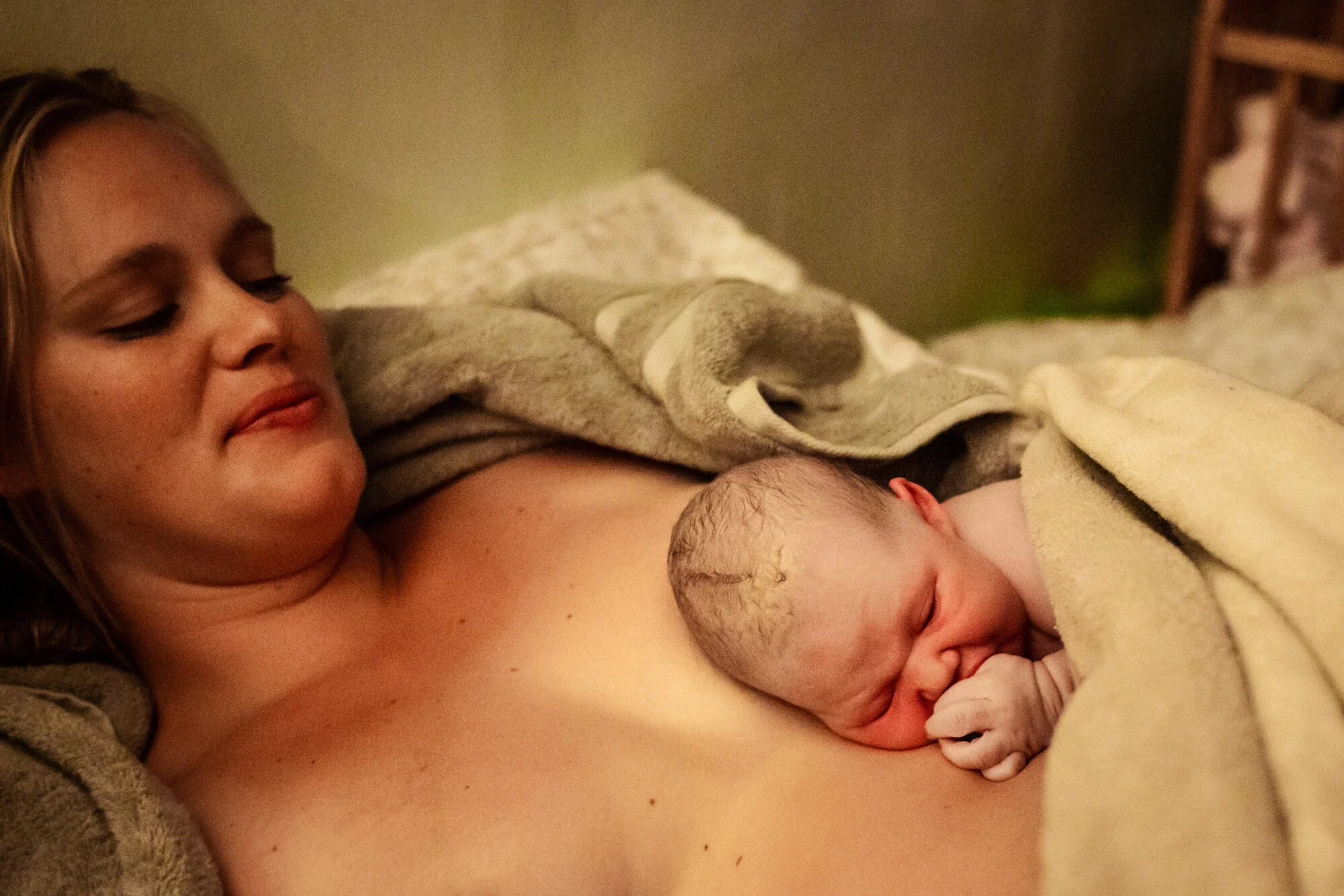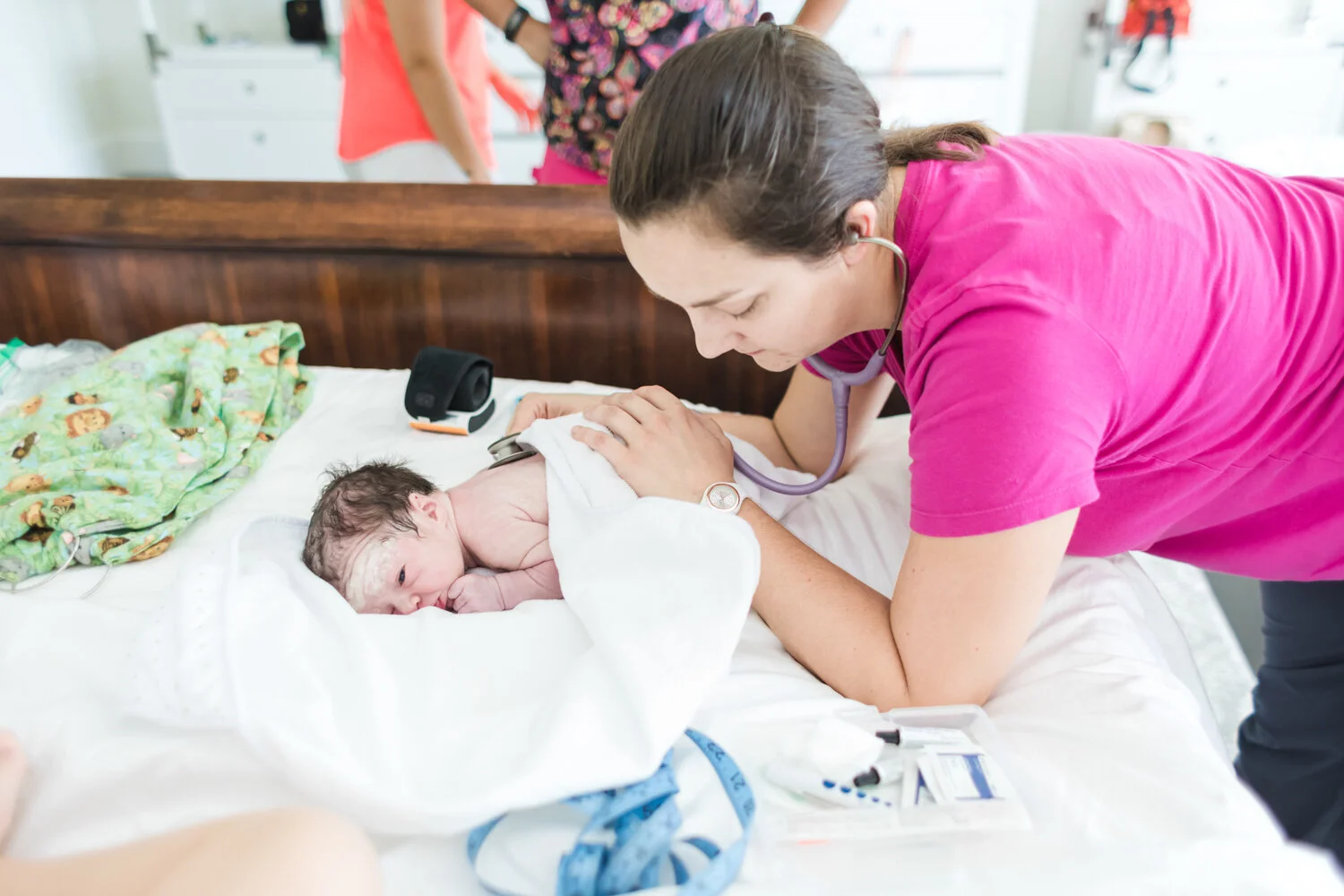Home Birth in South Florida, especially during a pandemic is the number one thought on every single pregnant mother’s mind right now, so if you can’t stop thinking about this, and seem to have a million and one questions to ask a home birth midwife. know that you are not alone.
Three years ago, I released a list of questions to ask a home birth midwife. Today, I am updating this list, in addition to including current, updated answers for some of the most important topics that every mom needs to know before she decides if to have a home birth.
Onto the Questions Below ↓
WHAT DO MIDWIVES BRING TO HOME BIRTHS?
If you think midwives show up empty handed and untrained to home births, just in time to catch a baby, you're not alone. This is the first myth we breakdown below with Midwife Michelle Cerami of @eastcoastmidwifery:
⠀
Midwife Michelle: ⠀
This is a commonly asked question when exploring home birthing with a midwife. ⠀
I bring a lot of things - medical supples, equipment, etc - I set everything up and rarely ever need to use any of it. ⠀
⠀
These items are readily available if needed, should any issue or complication arise and typically they all get packed up again untouched. ⠀
⠀
ie. Oxygen, IV fluids, antibiotics, anti-hemorrhagic medications, resuscitation equipment, urine catheter. ⠀
⠀
What I really BRING to a birth is my calm understanding, my loving compassion, and my trust for physiological birthing.⠀
⠀
The more commonly used items at birth from monitoring mom and baby during labor include :⠀
Stethoscope, blood pressure cuff, thermometer, doppler and fetoscope⠀
⠀
Comfort items on hand include : Heating pad, ice pack, rebozo, herbs, essential oils ⠀
⠀
And of course, the #1 comfort item for labor : Birth Tub. Available for all to use during labor and or birthing.⠀
⠀
You can follow Midwife Michelle @eastcoastmidwifery ⠀WHAT HAPPENS IF YOU GET EXHAUSTED FROM PUSHING? ⠀⠀
AND BABY GETS STUCK IN THE BIRTH CANAL? ⠀(Answer below)
Midwife Michelle:
- Preparing your body for birth can prevent exhaustion in labor including during the second stage (pushing).⠀
- This includes good nutrition, high quality supplements, hydration, and daily movement practice. ⠀
- Nourishing your body and staying hydrated while in early and active labor are essential to maintaining energy levels.⠀
- Having a birth team who will support you and ensure you are well nourished during the birthing process. ⠀
- When you have a physiological birth outside the hospital without intervention the hormonal shifts that happen are undisturbed and allow a spike in adrenaline precisely when needed.⠀
- Mobility in labor i.e. frequent movement and change in position of the birthing person, allows baby to navigate the pelvis effectively. ⠀
- Birthing in an upright position allows for a shorter more effective second stage.⠀
- Waiting for spontaneous pushing and fetal ejection reflex is key to shortening the length of second stage and preventing exhausting.⠀
⠀
Michelle Cerami is a licensed midwife and certified professional midwife serving families throughout south Florida since 2015. She is a home birthing mother of two who is passionate about physiological autonomous birth. Her private practice, East Coast Midwifery, is rooted in traditional mother centered care where intuition is honored and choice is respected. Families in her care are truly supported and deeply loved.⠀
3. BUT WHAT IF I HEMORRHAGE?
I asked Midwife Christa West of @coastalmidwife on the most requested question: What happens if I hemorrhage? ⠀
⠀
Midwife Christa:
Hemorrhage in the postpartum period is fairly rare. I have transferred 4 women in 8.5 years of practicing for complications related to hemorrhage. ⠀
⠀
At home births, your baby is placed on your chest immediately after birth and is not bothered until after the first breastfeeding has occurred which helps shrink the uterus and diminish the risk of bleeding.⠀
⠀
There are some predisposing factors that will contribute to an increased likelihood of hemorrhaging but these factors don’t indicate that you will bleed excessively for sure. ⠀
⠀
If we notice that a woman acquires some of these factors, we will keep and extra close eye to make sure everything goes smoothly. ⠀
⠀
Home birth midwives carry medications and herbs that help stop excessive bleeding and control the hemorrhage. We also have capabilities of setting up an IV if necessary. ⠀
⠀
If a woman is in need of additional medical assistance other than what her midwife can provide at home, we will then transfer her to the hospital for additional support. ⠀
⠀
Once again, keep in mind that hemorrhage is rare and in a normal, healthy woman with a normal labor and birth, it is not a huge concern in most cases.⠀
⠀
For more questions about hemorrhage, DM or comment below⠀
Midwife Christa is always available to connect with new expecting families at @coastalmidwife ⠀
Web: http://coastalmidwifery.com/
Facebook: https://www.facebook.com/CoastalMidwifery/
4. QUESTION TO YOURSELF: IS THIS THE RIGHT MIDWIFE FOR ME?
Ultimately, as skilled, recommended and compassion a midwife might be, they won't be the right midwife for you unless they meet your personal criteria.
I spoke with home birth midwife Sandy Lobaina on the phone yesterday, and she explained to me that choosing to birth at home or at a birth center is not just a decision, it is a path. Families making that choice need to be committed and ready.
As an innately wise woman, you carrying with you the gift of motherly instinct and intuition to guard yourself and your little growing life. I urge you to consider the following:
When you interview a home birth midwife, once the interview is complete, and you return home, allow yourself quiet, down time to reflect on the experience. Allow yourself to process how the meeting went.
How did you feel as the midwife spoke?
How did the things she said make you feel?
Did she let you feel heard and not rushed?
Did her personality help you to feel connected and instantly safe and supported?
Take note of what feelings may rise from your instincts.
Those feelings will always be 100% right.
They will become LOUD during your pregnancy and birth.
There is a difference, of course, between leaving the meeting with a midwife and realizing you have more questions for her, and feel unsettled until you follow up and clear up uncertainties. Not every first meeting will be perfectly complete.
However, if you feel hesitant or unsure regarding your very first meeting, and if any negative feelings are present, as your pregnancy proceeds, take into consideration that those instinctual feelings you had the first time will become louder and more pronounced and ultimately, unavoidable. It is impossible to hush the roar of your maternal instincts without compromising your peace. I speak so profoundly to this matter because I have lived this reality with my own experiences.
Alternately, if during the very first meeting with a midwife you felt connected, safe, supported, and you smiled, perhaps a tear welled up in your eye because you felt like you found 'home' with this person, those feelings will amplify as you get closer to your meeting day with your baby and aid in creating a positive mindset for your labor and birth and boost your self confidence. And in order to have the peaceful, calm birth you desire, you must believe in yourself and feel supported in your decisions.
4. MEDICAL SITUATIONS & TRANSFERS
What kind of medical situations during pregnancy would require me to be transferred into the care of an OBGYN?
Under what circumstances would you transfer to the hospital? In the event of a transfer, will you stay with me and support me through my entire birth and for the first couple of hours once the baby is born?
What constitutes a non-emergent transfer vs. emergent transfer? Where do I go in the event of a non-emergent transfer vs. emergent transfer? Who is your back up OBGYN, Who is your back up midwife in the event you have an emergency when I am giving birth? How many weeks ‘overdue’ could I go before you transferred my care to a doctor? How many minimum weeks pregnant must I be to be able to have a home birth (36 weeks? 37 weeks? 38 weeks?) What is your hospital transfer rate?
5. BABY CATCHING, SKIN TO SKIN AND UMBILICAL CORD
What are your feelings on me or my partner or spouse catching the baby? Will you assist us in birthing our baby? What are your feelings about delayed cord clamping, placenta encapsulation, skin to skin and breast crawl?
6. HOW MANY BABIES HAVE YOU CAUGHT?
(From the mamabirth.com website, "Some mothers prefer a very experienced midwife, some don't. Some want a midwife who can handle anything that goes wrong and recognize it well before it even happens. If one of the midwives is newer, maybe her back up OBGYN is more experienced and she may prefer to transfer you than handle a situation on her own. You may want to know how many births they attended prior to being licensed AND after.")
How long have you been practicing midwifery? Why did you become a midwife? What is your training/education/certification?
7. GESTATIONAL DIABETES
Under what circumstances can you continue to be my midwife if I test positive for gestational diabetes?
8. INSURANCE AND PAYMENTS
How does it work with my insurance covering your midwifery services, how much do you charge, and by what date would the full amount be due? Do you accept payment plans? What is your refund policy if we decide to switch care providers or need to be transferred for birthing.
9. POST PARTUM CARE
What kind of postpartum care do you offer? Do you work with post partum doulas? Can you recommend a post partum doula or other post partum support to help with extended post partum matters such as breastfeeding and latch issues, help with meals and baby sleep.
Do you do placenta encapsulation? Is there an extra charge? Do you facilitate water birth? What methods of pain management do you recommend?
10. MY PARTNER’S FEARS AND CONCERNS
My partner has x, y, z fears about home birth. How have you dealt with this in the past?
11. COMMUNICATION
What is your preferred method of communication, prenatally (phone, email, text)?
12. BIRTH TEAM
Who comes with you to the birth? If that person is another midwife?
13. WHEN DO YOU COME
At what point during my labor will you come to my home? When should I call you?
*** Mention any concerns at this point about a history of labors women in your family have had that may be of importance to you for your birth
14. VITAMIN K AND EYE OINTMENT
What are the pros and cons of vitamin K shot and eye ointment
15. WHAT DO I NEED TO BUY FOR A HOME BIRTH
Do I need to order a home birth kit on my own or do you bring it and include it in your fees?
Do you bring an inflatable water birthing tub with you or do I need to privately rent one and purchase a tub liner for it? How easy is it to connect a hose to your sink to fill a tub and are there certain plumbing situations that could prevent that?
16. DO YOU PREFER WORKING WITH A DOULA AT HOME BIRTHS? WOULD YOU RECOMMEND I HIRE ONE?
17. EDUCATION
Do you offer or suggest taking childbirth preparation courses?
18. DURATION
How long will you and/or your support team stay with mom and baby after the birth? And when do you come back for post partum visits. How many postpartum visits are offered under your care and on what days do these visits occur?
19. BREASTFEEDING
Is breastfeeding support offered? Is there a virtual breastfeeding education class I can take during pregnancy. What items can I purchase during pregnancy to be ready for anything once my baby is born














